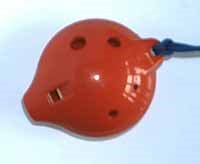A WINDOW ON THE ARAB WORLD (14)

The clock cannot be turned back– which is what the Islamic fundamentalists are trying to do. The discovery of oil in the Arab world has unleashed the forces of change and modernization, and these processes will continue.They are unstoppable and inevitable.Oman will continue to develop – the oil revenue will see to that... Sleepy Fanja now has a six-lane highway going past it , a whole mountain torn down to construct it.Bin Laden and his followers wish to take the Muslim world back to a mythical distant past , the Caliphate of the seventh century A.D. , ‘ the good old days’ ,when life was simpler,purer and less complicated than today. It is totally unrealistic, and is not going to happen... If the Arabs can be persuaded to view the future with confidence, with the assurance that their values and their identity are not in danger, they will not embrace fundamentalist doctrines which have no relevance in the modern world. It is our job to persuade them that they have nothing to fear from the forces of progress and modernization, that this is the only way forward
And, finally, we must solve the Palestinian problem. It is an utter contradiction for the Israelis to demand their right to a homeland, and then to deny that right to the Palestinians.The West claims that it believes in democracy and human rights, yet only goes through the motions of protecting the Palestinians. This issue is the catalyst of so much hatred in the Arab world. If the West were able to solve this problem amicably, a great deal of the bile and venom towards us would disappear.
Samuel Huntingdon and others have written about an inevitable ‘clash of civilisations’ between the Islamic world and the West .This is nonsense. As my experience proved, Arabs and Westerners can work very harmoniously together, as long as both parties feel they are pursuing mutually beneficial objectives.
ภาพจาก Destination Oman
เว็บอื่นที่น่าสนใจเกี่ยวกับโอมาน Oman Holidays BLOG
Notice: A British mate of mine, Robert Butterfield, sent me his journey story to publish on the blog. His experiences inside the kingdom and abroad would be shared regularly. I’d like to thank Bob for the fantastic writing.
โรเบิร์ต บัตเตอร์ฟิลด์ เพื่อนชาวอังกฤษส่งบทความการเดินทางท่องเที่ยวในประเทศไทยและต่างประเทศมาให้นำลงเพื่อให้เพื่อนๆ ได้อ่านกัน ขอขอบคุณบ้อบที่ตั้งใจเขียนบันทึกการเดินทางมาฝากเพื่อนๆ และจะทยอยนำลงให้อ่านกันอีกครับ



























